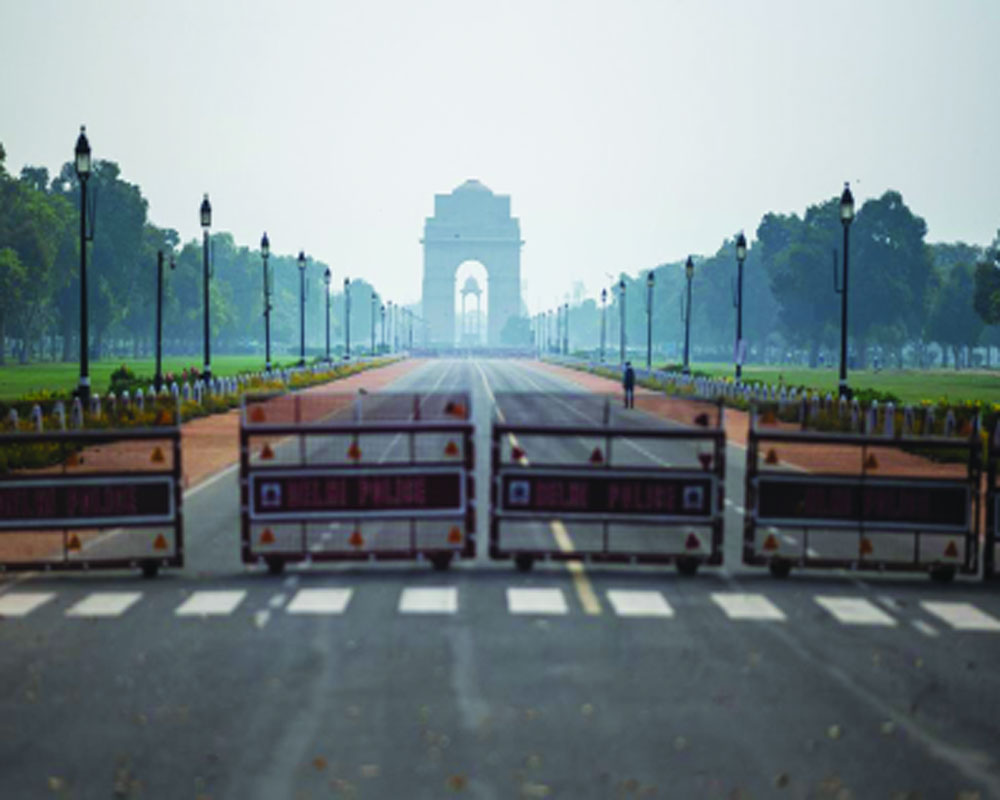As lockdown 4 comes with easing of curbs, let us not undo gains with reckless behaviour. Self-control is the best preventive
Though the country is now going into lockdown 4, ostensibly at the request of States that have high cluster spirals and where containment is still a long-drawn problem, there is also a corresponding easing of restrictions to get the economy back on rails. So this lockdown is a lot about public behavioural discipline and compliance of norms and less of Government enforcement to ensure we slip into a culture of living with the virus. The Government would much rather focus on containing transmission of the disease with a targetted and focussed approach in containment areas and allow resumption of the business of living in other areas. This, of course, does not mean a letting down of guard; the Government is keeping a watch but the onus of observance and vigil shifts considerably to citizens and local administrations. In fact, that is how things should be, a decentralised way of handling things. The Centre can only form broad policies but it is the States that are at the forefront of the battle against COVID-19, which is manifesting itself in different ways in different contexts and strains. This is one of the reasons why at the Prime Minister’s teleconference with Chief Ministers, the latter argued that they be allowed to decide on zoning and easing of restrictions as they are best placed to assess and work on a situational report. It has taken Prime Minister Narendra Modi, usually known for his centrist and top-down approach, some effort to change himself and engage in consultative and cooperative federalism though all the “point taken” notes may not have reflected in policy always. But inputs now have to be matched with output. Which means the disease management has to be left to the wisdom of State Governments, irrespective of political affiliation or point-scoring. Central intervention can be limited to strategic management and lending expertise. Of course, it must now ramp up financial assistance within a reasonable range and work out a national fiscal stimulus, enable big bang reforms and launch economic correctives. Yes, things were mishandled in the beginning. The unplanned and sudden lockdown set off an unprecedented reverse migration of daily wagers, who were evicted from their livelihoods and settlements overnight. Now that there is a system of repatriating them through buses and trains, with the Prime Minister himself acknowledging that the right to return home must be respected, one wonders why this could not have been done before when the disease burden had not quite bulged out of shape and a disciplined exit would have saved them from contracting infection at overcrowded camps and assemblage points. Even now this unanticipated exodus of labourers from cities to their villages continues unabated, shocking us out of our wits when they die along the way due to hunger, dehydration or accidents. Those who cannot afford a bus or train as daily earnings have meant no savings — a majority, in fact — continue to trudge hundreds of kilometres, over weeks, in the journey back home where they may have a hovel and live off the land. And if they had to be held back, there should have been assurances, job camps and soup kitchens, something that are being organised by some private organisations even as States like Haryana and Punjab are registering migrants on a portal to relocate them to safe working sites that are running now. While the lockdown has given us ample time for preparing counter-strategies and medical infrastructure, testing wasn’t intensive or fast enough to trace a pattern of clusters and hotspots and map the spread early. And though the Government is relying on its response module of experts, it wouldn’t be a bad idea to broadbase that and get the best minds in medicine, economics and social sectors to submit their recovery strategies, regardless of whether they have been approached or not. Be that as it may, course correction can begin even now and howsoever flawed, the lockdown was needed in a densely populated country like ours.
Also, let us not forget the resurgence of the disease, the second wave as it is called, in South Korea, Germany and even Italy, where lockdown exits have been allowed but have gone out of hand as people got into their old socialising habits at public spaces. India will have to be very careful about not losing the advantage so far by giving into abandon. It can learn from scenarios in various countries. For example, the UK has allowed people to meet friends or relatives in parks maintaining a two-metre distance and will be permitting standalone shops, eateries and salons gradually thereafter. Of course, any spike will mean withdrawal of these freedoms. In the end, we have to reconcile that we have to mostly stay at home, even work from there and limit our public presence. This may seem a tall order but without a vaccine, our choices will shape our right to live.
(Courtesy: The Pioneer)








 OpinionExpress.In
OpinionExpress.In















Comments (0)